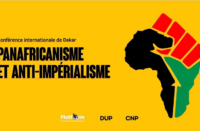Since at least the final stages of World War II, the United States has sought to achieve global hegemony through the unrestrained use of its economic and military might. Constrained for several decades by the presence of socialist states, the demise of the Soviet Union appeared to give the American empire a free hand to exercise its dominance. However, now a group of countries has come together, not with the declared aim of building socialism, but to create an alternative to US-led, Western monopoly. Valuable as this development is in terms of diluting the grip of imperialism, it poses a risk to peace insofar as the ancien régime is unlikely to willingly concede its position as king of the castle.
Any doubts about the extent of a changing world order were surely dispelled by the convening late last month of the 16th annual BRICS summit in Kazan, Russia. Attending the event were over 20 heads of state including Chinese President Xi Jinping and Indian Prime Minister Narendra Modi. The grouping is composed of founding members Brazil, Russia, India, China, and South Africa, and now includes Iran, Egypt, Ethiopia, the United Arab Emirates and Saudi Arabia. The gathering is significant for many reasons, but two at least are of major importance.
First is the reality that the membership includes widely different cultural and social systems. For example, the strictly religious Iranians are content to meet with representatives from the Communist Party of China in a conference hosted by free-market Russia. Noteworthy too is the fact that several of the participants, such as India and China, are prepared to park serious differences while promoting their wider objectives. Paradoxically, this absence of ideologically unanimity lends strength to the group insofar as it may overcome the West’s well-practised and long used tactic of divide, conquer and rule.
Important also is the fact that the expanded BRICS group now represents about 45% of the world’s population and 25% of global gross domestic product (GDP)[1]. India and China alone are home to over one-third of all people in the world while Brazil has the largest population in South America. Clearly too, with a quarter of global GDP, this group of countries exercise very considerable economic influence internationally. According to United Nations reports, the People’s Republic of China (PRC) is the world’s largest manufacturing centre, while Iran has enormous oil reserves.
The aim[2] of those who met in Russia is hardly a secret. There was and remains the objective of creating an alternative to the economic and political monopoly of the West. Participants want to reduce their dependence on the US dollar and to dispense with dictates from the Washington-controlled World Bank and International Monetary Fund (IMF). In particular, there is the ambition to construct an alternative to the SWIFT[3] system, a mechanism for international financial transactions that allows Washington dictate whether cross-border trade-related payments can be transacted or not.
Were this transformation to be affected, it would undoubtedly have the potential to undermine the global hegemony currently exercised by the United States and its allies.
Unsurprisingly, none of this has gone unnoticed by those looking in from outside. An editorial[4] in the Financial Times days before the BRICS summit indicated the thinking of those supporting the US-led and -dominated financial world. Although not referring directly to events in Kazan, the British-based publication raised concerns over the declining influence of the World Bank and IMF while acknowledging that the “economic and demographic centre of gravity has shifted away from the US and Europe and towards China and India”, adding that: “China is already estimated to be the world’s largest creditor. Its greater role in lending to the developing world has complicated the IMF’s debt restructuring process.”
This last point, raising concern about China providing credit (largely to less well-off lands) is significant. By this “complicating [of] the IMF’s debt restructuring process”, the West is deprived of powerful financial leverage over developing countries through the use of enforced austerity, more accurately described as impoverishment.
And of course, it is the presence of China in this group that is causing the greatest consternation in Washington. With its vast and continuously expanding manufacturing and technological economy coupled with its aforementioned creditor status, the PRC is, if unchecked, destined eventually to overtake the USA economically and in terms of global influence.
In an attempt to preserve its current dominance, the US House of Representatives passed 25 Bills[5] in one week in September directed against China’s government and economy. The objective is allegedly “to defend the American people, our economy, and our values” butis, in reality, to put a gloss over the beginning of a McCarthy-like offensive against a vibrant and viable alternative to Yankee imperialism.
The BRICS summit in Russia will intensify US efforts to curb the growing influence of its challengers. Therefore, and in light of Washington’s record of military intervention and adventurism, the risk of major conflict cannot be ruled out.
While we live in challenging times, the prospect of breaking free from imperialist domination must be welcomed.
[1]National Accounts Main Aggregates, UN website, accessed at: https://unstats.un.org/unsd/snaama/
[2] McKenzie, R. (2024) “Brics summit calls for new multilateral world” Morning Star (23rd October 2024), accessed at: https://morningstaronline.co.uk/article/brics-summit-calls-deepening-new-multilateral-world
[3] Wiggins, K, (2024) “HSBC Hong Kong joins China’s alternative to the Swift global payment system” Financial Times (24th October 2024), accessed at: https://archive.ph/l5zh6
[4] Editorial (2024) “Why the World Bank and IMF matter more than ever”, Financial Times (19th October 2024), accessed at: https://archive.ph/r8CAg
[5]Cold War legislative barrage: House passes 25 anti-China bills in one week. Duncan McFarland & Krista Chan 21/10/2024 Peoples World






